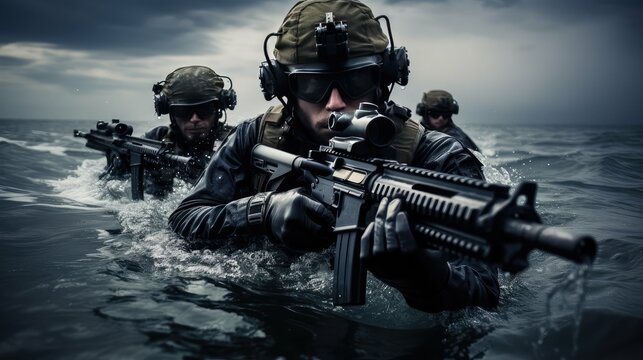
The United States military is prepared to conduct operations across the globe at a moment’s notice.
Elite Special Mission Units (SMU), also known as Tier 1 units, are deployed to conduct classified missions in reconnaissance, black operations, counter-terrorism, and unconventional warfare.
The five Tier 1 units in the United States military are the US Naval Special Warfare Development Group (DEVGRU), Delta Force, 24th Special Tactics Squadron, Intelligence Support Activity, and Army Ranger Regimental Recon Company.
The Joint Special Operations Command (JSOC) brings together the top SMUs of the Army, Navy, and Air Force.
With the latest tactics and equipment, JSOC units can precisely locate and engage the enemies of the United States.
The 5 Tier 1 Units In The US Military
#1. DEVGRU: DEVGRU is also known as SEAL Team 6. They are the US Navy’s elite SMU that specializes in counter-terrorism and hostage rescue.
#2. Delta Force: Delta Force is a Combat Applications Group of the US Army. The main mission of the Delta Force is counter-terrorism.
#3. 24th Special Tactics Squadron: The US Air Force’s 24th Special Tactics Squadron provides air support and control for the other Tier 1 units.
#4. Intelligence Support Activity: The US Army Intelligence Support Activity provides mission essential information for other JSOC units.
#5. Army Ranger Regimental Recon Company: A part of the 75th Ranger Regiment Special Troops Battalion provides special reconnaissance to support JSOC missions.
#1. DEVGRU (aka SEAL Team 6)
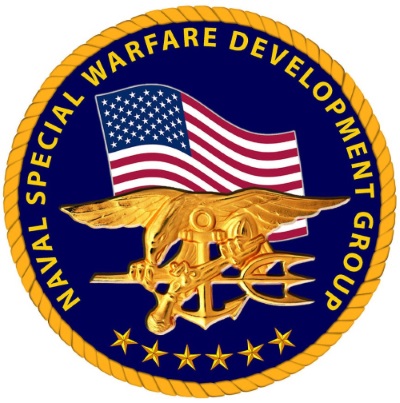
DEVGRU is the Navy’s special operations unit commonly known as SEAL Team 6.
It is the US Navy’s main element to perform counter-terrorism operations throughout the globe.
It was formed in 1980 after the failure of Operation Eagle Claw, which failed to rescue 52 American captives in the US embassy in the Iranian capital.
After the disaster of Operation Eagle Claw, the US Navy decided they needed a unit dedicated to counter-terrorism operations.
SEAL Team 6 was born.
In 1987 the unit was disbanded, but its successor DEVGRU maintained the nickname.
Interesting fact: There were only two SEAL Teams when SEAL Team 6 was formed. The number difference was a subterfuge to make the enemies of the US think there were more SEAL Teams than what existed.
Command Structure
DEVGRU is formed into six different squadrons broken down by capabilities.
- Black Squadron: Snipers, Surveillance, and Special Reconnaissance
- Gray Squadron: Maritime Operations
- Silver Squadron: Assault Operations
- Gold Squadron: Assault Operations
- Red Squadron: Assault Operations
- Blue Squadron: Assault Operations
To provide commanders better control, assault squadrons are broken down into three elements and then into smaller teams such as a four-man fireteam.
Other Roles
DEVGRU has more capabilities than counter-terrorism, which include:
- High-profile security details
- Reconnaissance
Notable Missions
- Maersk Alabama hijacking: On April 8, 2009, Pirates hijacked the cargo ship Maersk Alabama. DEVGRU’s Red Squadron engaged the pirates on April 12, 2009 and saved the crew. This operation later became the basis for the book and film Captain Phillips.
- Operation Neptune Spear: On May 2, 2011, Red Squadron took part in the raid that killed Osama bin Laden the al-Qaeda terrorist behind the September 11, 2001, World Trade Center attack in New York City.
- The capture of Ahmed Abdulkadir Warsame: On April 19, 2011, SEAL Team 6 captured the terrorist Ahmed Abdulkadir Warsame without firing a single shot. Warsame provided supplies to al Shabaab and al Qaeda.
#2. Delta Force (aka The Unit)
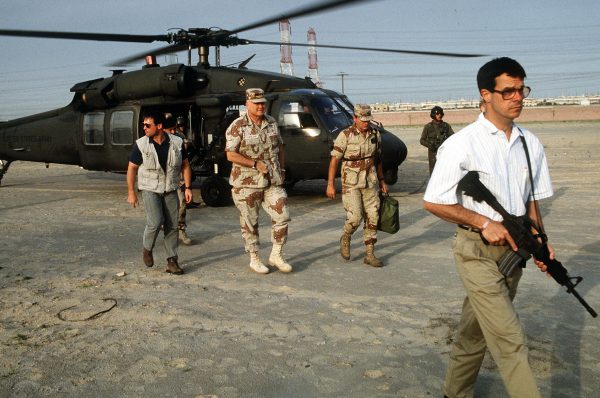
Delta Force is the US Army’s primary capability in counter-terrorism. Delta Force is also known by a few other names but is commonly called “the Unit.”
Much of the information about Delta Force is classified and is unavailable to the public due to national security.
The unit became active on November 21, 1977, to assist the US in the growing problem of terrorism worldwide.
Delta Force’s headquarters is located at Fort Bragg, North Carolina.
Command Structure
Delta Forces have four Assault squadrons, A, B, C, and D Squadrons. Delta Force has two additional elements:
- Support Elements: These elements are made up of signal and support squadrons that supply Delta Force with communications, medical, intelligence, logistics, and EOD.
- Aviation Platoon: Provides a small fleet of covert helicopters to support Delta Force operations.
Other Roles
Delta Force is more than a counter-terrorism unit. They also conduct:
- Raids
- National intervention missions
- Capturing/ eliminating high value targets
- Intelligence gathering
- Unconventional warfare
Notable Missions
Some of the high-profile missions of Delta Force are known to the public. Here are a few of the notable missions that they have been a part of:
- Operation Gothic Serpent: On October 3, 1993, C Squadron set out to capture or kill the Somali warlord Mohamed Farrah Aidid. The mission was a failure. After Somali rebels shot down two black hawk helicopters, an 18-hour firefight ensued where there were many deaths to include 5 Delta Force operators. The book and movie Black Hawk Down are based on these events.
- Operation Acid Gambit: On December 20, 1989, Delta Forced conducted a rescue operation to retrieve an American civilian, Kurt Muse, from a prison in Panama City. Kurt Muse was arrest for anti-Noriega radio broadcasts.
- Operation Red Dawn: On December 13, 2003, C Squadron led a successful operation that captured the former Iraqi dictator Saddam Hussein. The operation consisted of over 600 US troops from various units.
#3. 24th Special Tactics Squadron (24 STS)
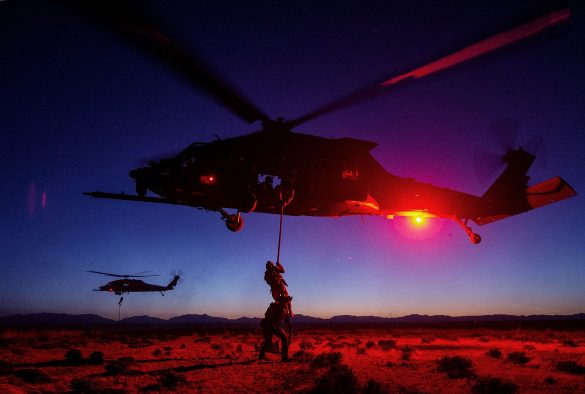
The 24th Special Tactics Squadron is the Tier 1 special forces element for the US Air Force.
The history of the 24 STS goes back to 1941 and has been a significant component of US special forces.
The headquarters is located in Pope Field, North Carolina.
The combat controllers of the 24 STS work alongside other SMUs to accomplish the mission. The Airmen are attached to other SMUs.
They need to have the same training as the other operators to include:
- Counter-terrorism
- Fire support
- Reconnaissance
- Pararescue
- Hostage rescue
- Medical Aid
Notable Missions
- Task Force 145: Was a part of Task Force 145, where the 24 STS conducted operations to locate high-value targets in the al Qaeda leadership. In June 2006, Iraqi al Qaeda leader Abu Musab al-Zarqawi was killed as part of this task force.
- Invasion of Panama: The 24 STS Provided forward air control during the 1989 United States invasion of Panama.
- Operation Iraqi Freedom: 24 STS was involved in many operations in the war against terrorism. Two of these operations were the combat jumps conducted with 3rd Ranger Bn to secure the Haditha Dam and a landing strip outside the town of Al Qaim.
#4. Intelligence Support Activity (ISA)
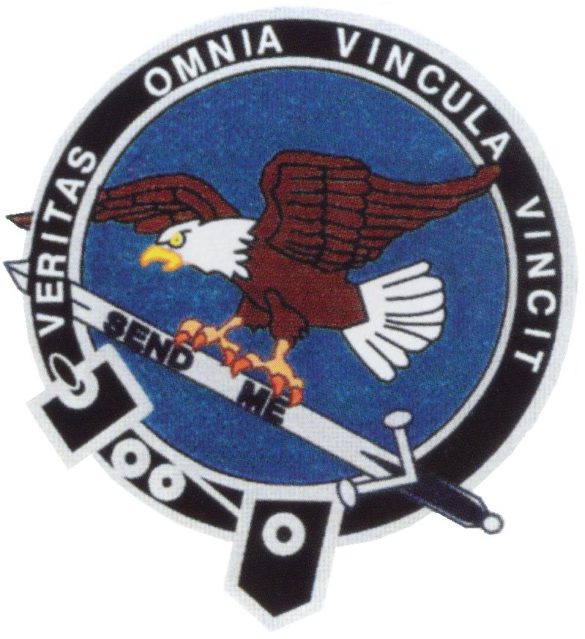
The Intelligence Support Activity is the specialized intelligence element of the US Army.
It provides JSOC intelligence through various means to support special operations.
On March 3, 1981, ISA became a permanent unit in support of intelligence gathering operations.
In 2003, ISA joined Joint Special Operations Command, and the headquarters is located in Fort Belvoir, Virginia.
When ISA joined JSOC, their name changed to Mission Support Activity.
ISA has several elements that specialize in:
- Human intelligence: Gathering information from human sources. This includes reconnaissance and interpersonal communication.
- Signal intelligence: Gathering intelligence by monitoring electronic communications to include radios, cellphones, and computers.
- Combat: Raids, ambushes, and sabotage.
- Training
- Administration
Notable Missions
- Operation Anaconda: ISA provided intelligence that helped direct operations against al Qaeda and the Taliban in the Arma Mountains and Shahi-Kot Valley.
- Operation Red Dawn: ISA provided signal intelligence that led to the successful capture of the former Iraqi dictator Saddam Hussein.
- Operation Winter Harvest: On December 17, 1981, Brigadier General James L. Dozier was abducted by Italian Red Brigade terrorists. ISA’s signal intelligence assisted in the rescue of the general.
#5. Army Ranger Regimental Recon Company (RRC)
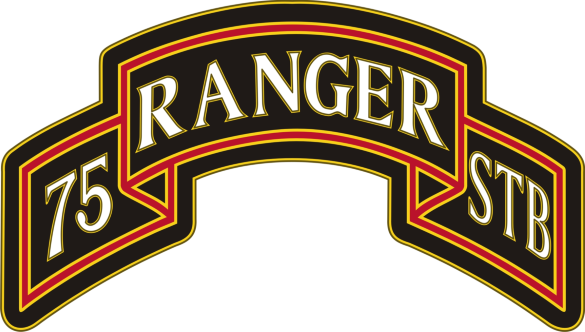
The Army Ranger Regimental Recon Company is an element of the 75th Ranger Regiment.
The Regimental Reconnaissance Detachment (RRD) was activated in October 1984 to gather intelligence for the 75th Ranger Regiment.
In 2007, the RRD became the Regimental Recon Company (RRC).
RRC is believed to be a member of the JSOC that specializes in special reconnaissance. RRC headquarters is in Fort Benning, Georgia.
There are three six-man teams within each RRC to support operations. These soldiers’ mission is to provide:
- Limited Direct Action: Raids, ambushes, demolition, direct airstrikes, etc.
- Surveillance: Observing critical details about the enemy, such as size, what they are doing, where they are, who they are, what time, and what equipment they have. Also, they will place beacons and other tactical gear behind enemy lines.
- Reconnaissance: Patrols, infiltration, and identifying obstacles.
Notable Missions
- Invasion of Afghanistan: On November 10, 2001, RRD team 3 conducted a parachute infiltration in Afghanistan to establish a landing strip for future operations.
- Operation Red Wings ll: RRD was tasked with recovering the ambushed SEALS reconnaissance team from Operation Red Wings. They were also charged to locate the ambushers and to take them out.
- Enduring Freedom: Since the start of the War on Terrorism, the RRC has been a significant player in many operations. They are one of the busiest operating units with the smallest dwell time in the United States.
Conclusion
The 5 tier 1 special operations units of the United States are the best in the world due to their training, dedication to duty, and resolve.
Their many exploits are considered classified due to operational and national security.
However, the few operations that are known to the public show their professionalism, initiative, and devotion to defending the constitution of the United States.


